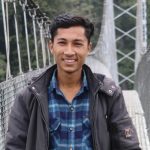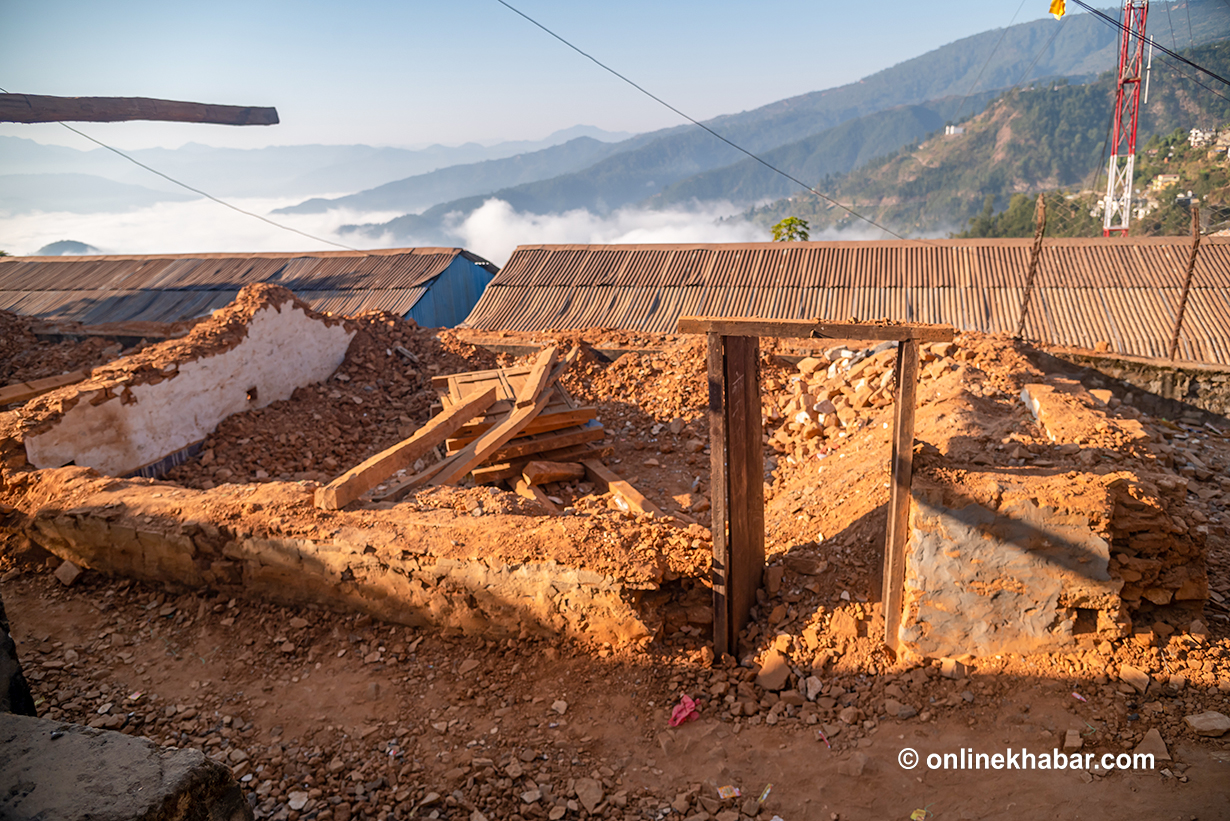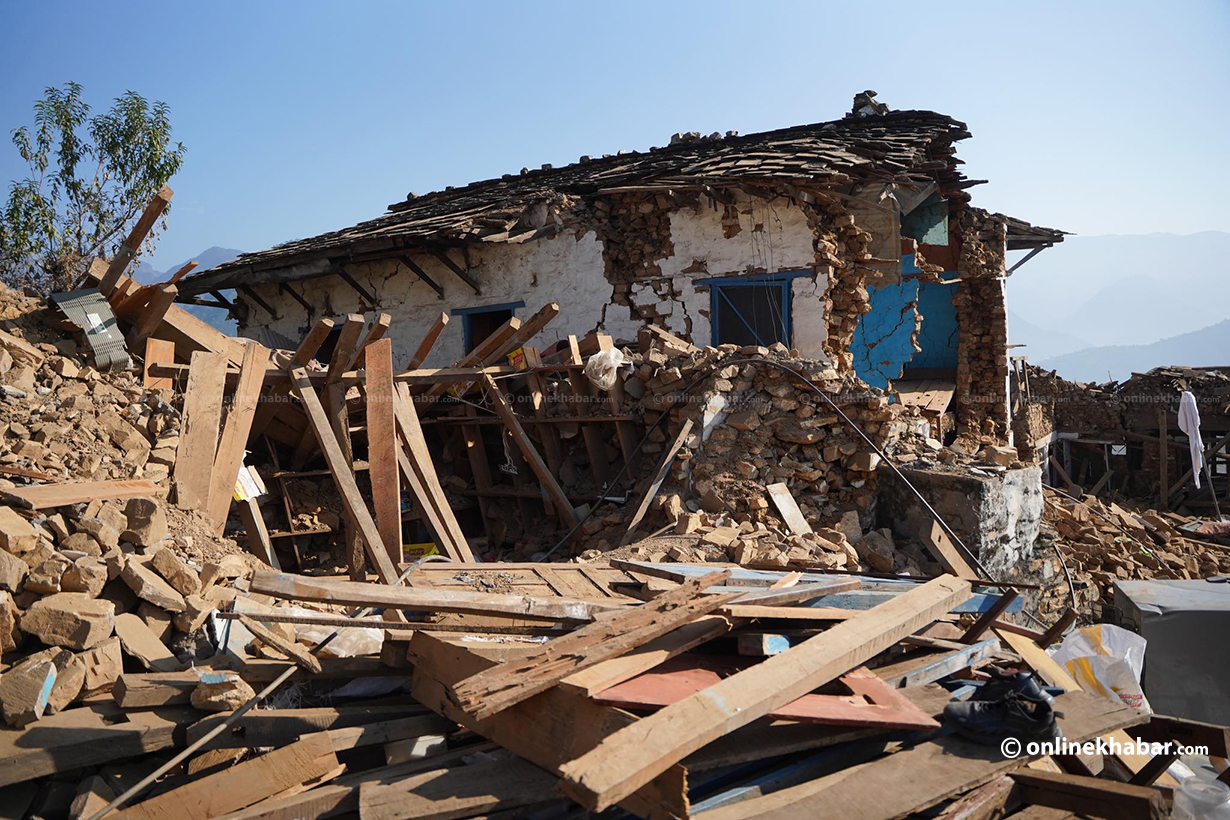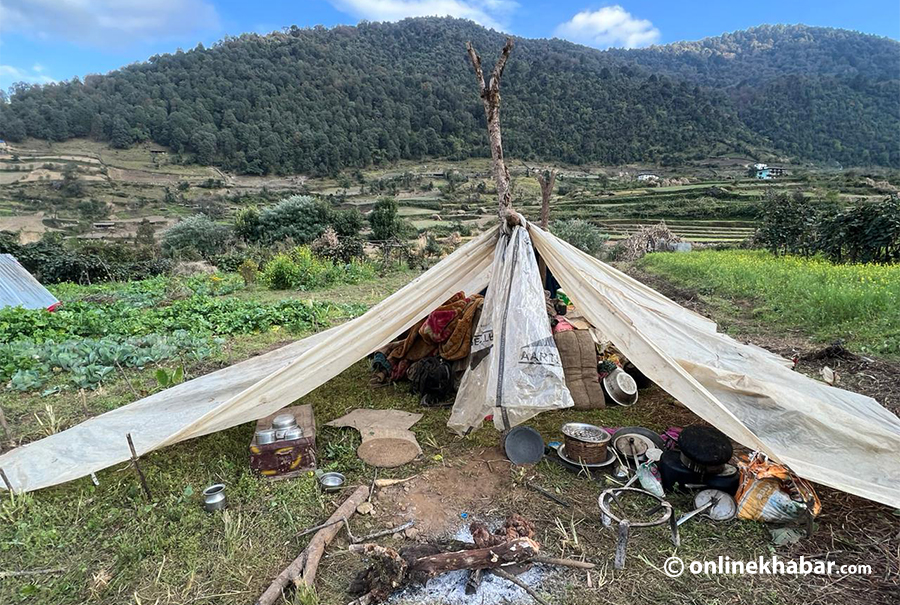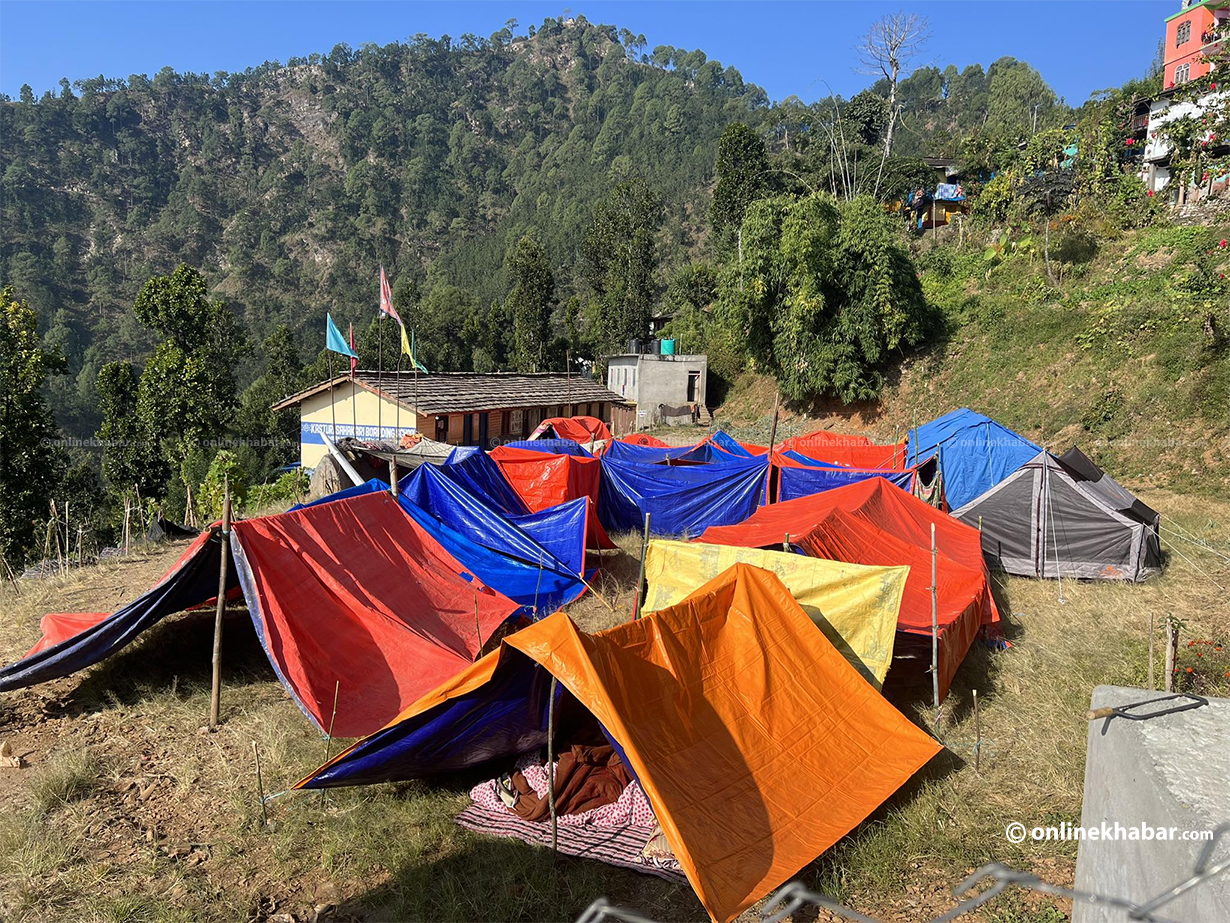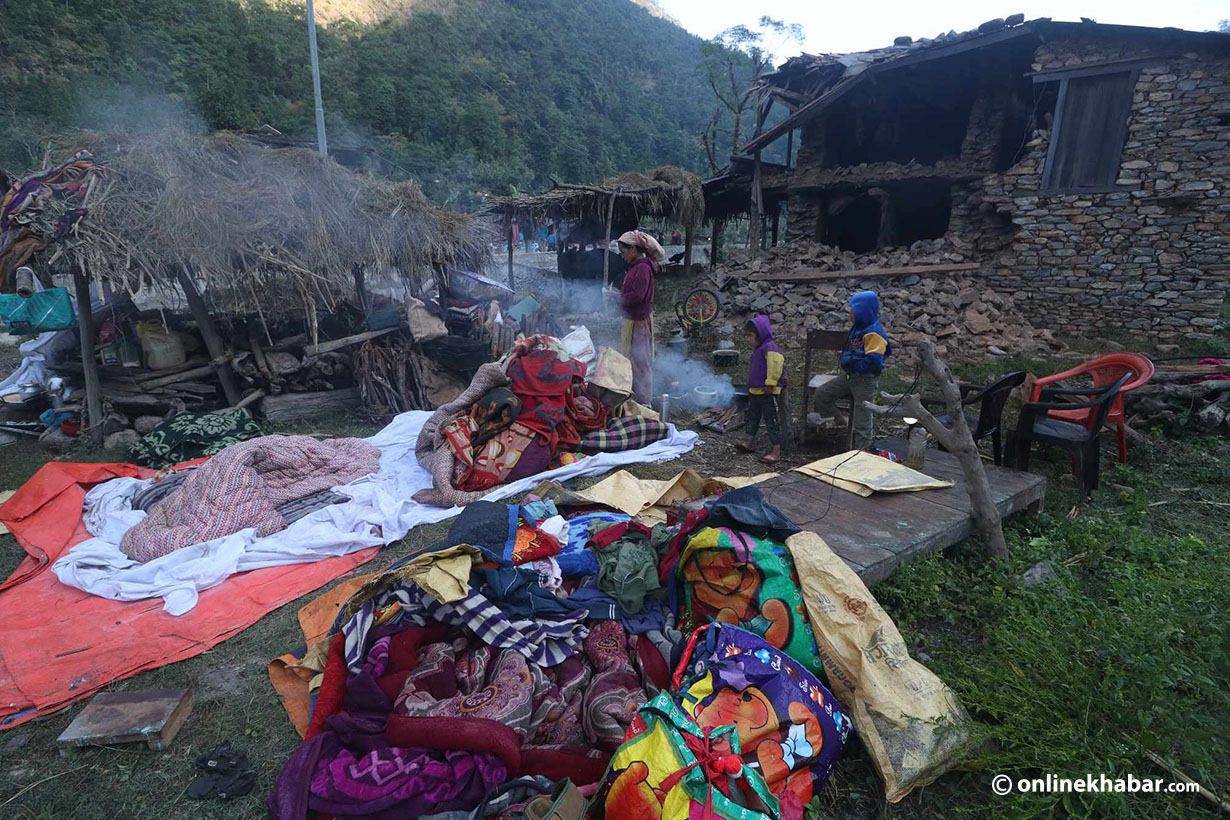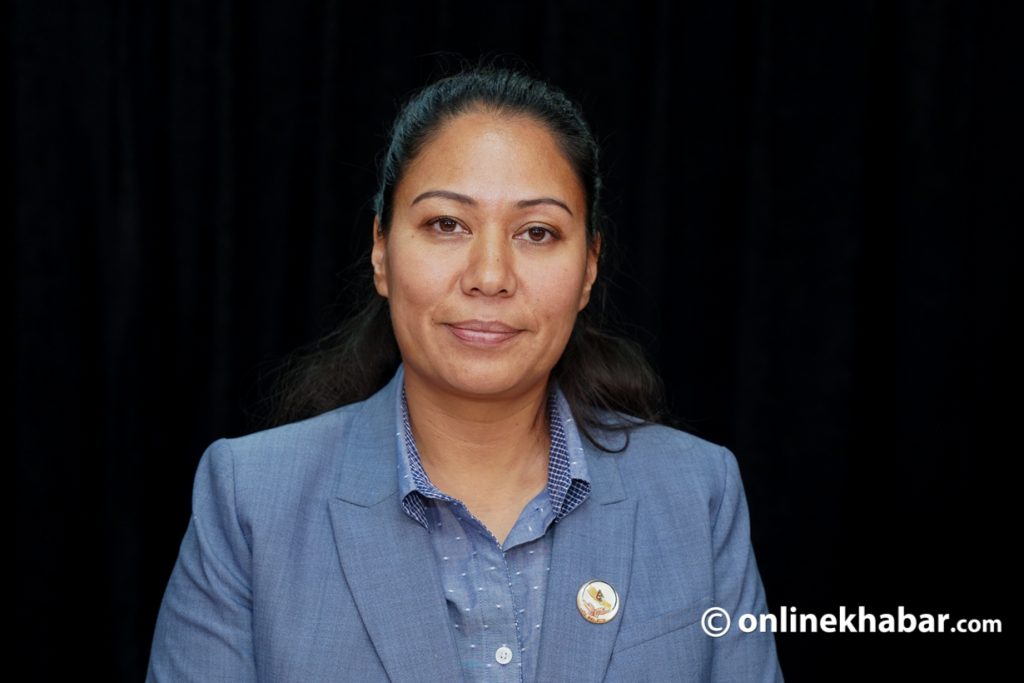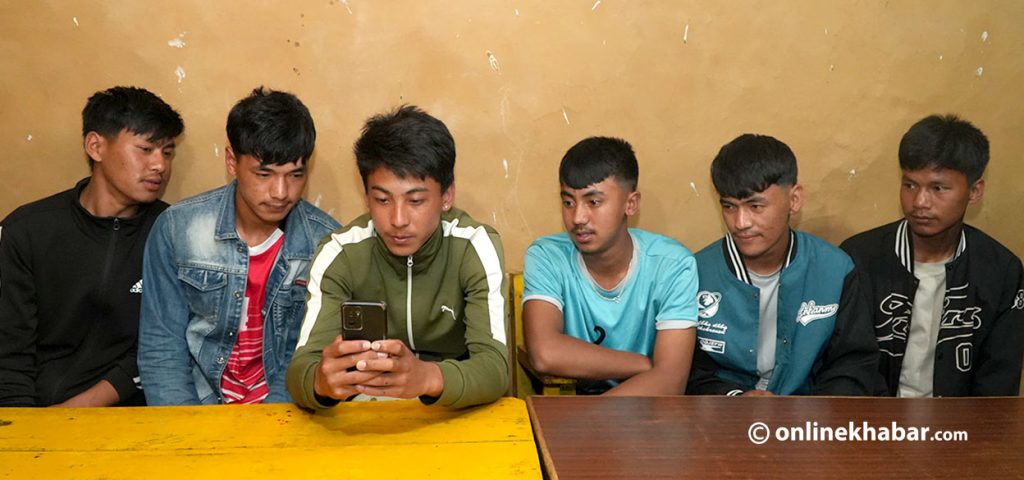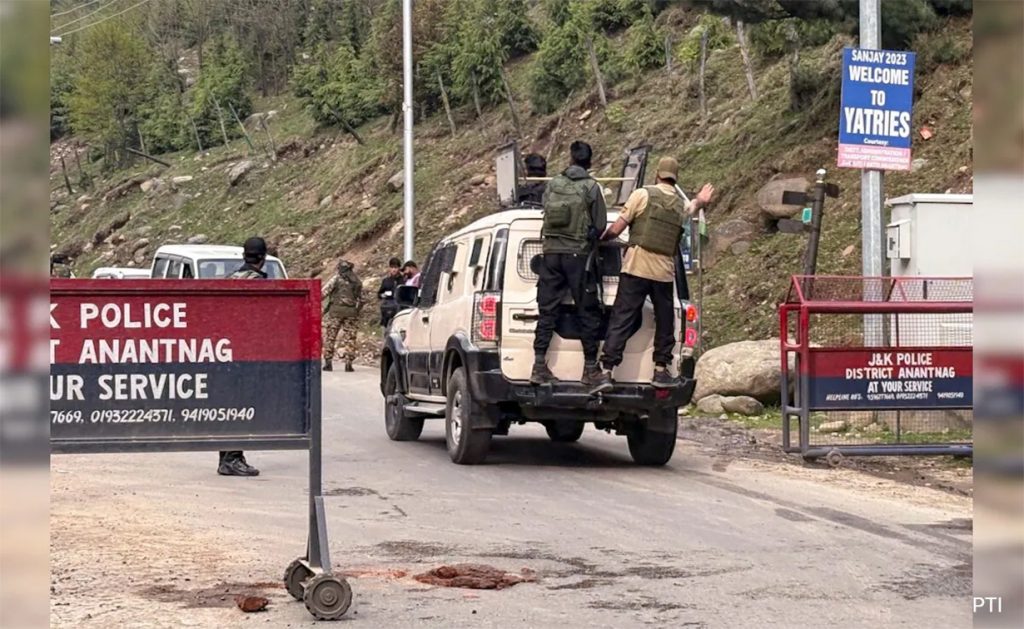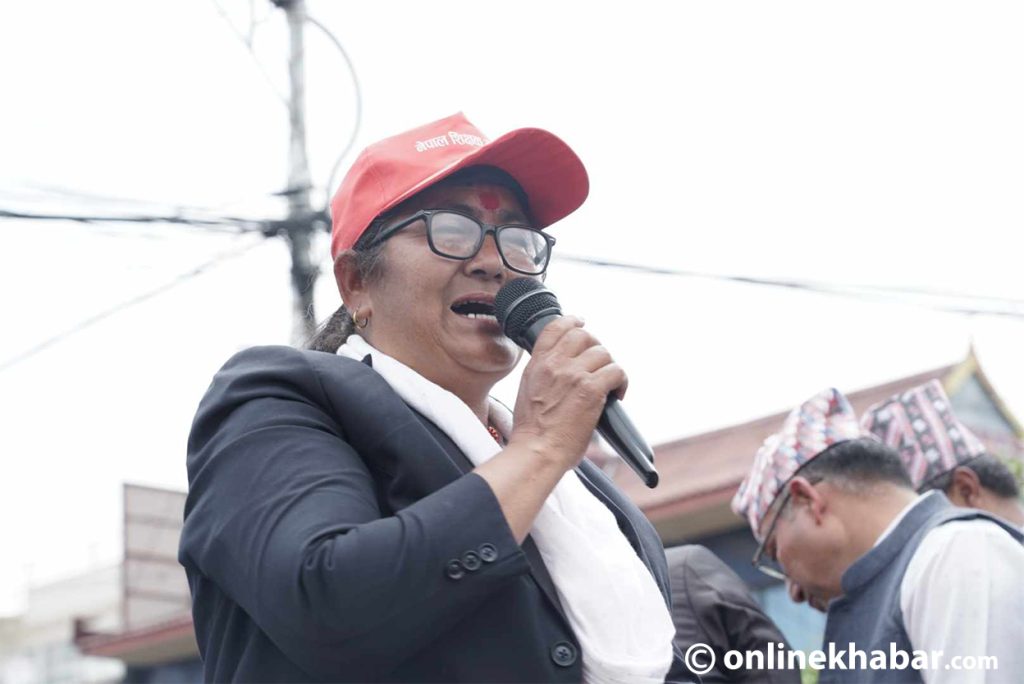
There is a dense population in Chiuri village, nestled near the banks of the Bheri River. The village is home to the Dalit community, who have been struggling to make ends meet. They do not have enough land to feed their families throughout the year. As soon as they reach working age, many of them migrate to India in search of work.
But that’s not the only tragedy of the people here. Whether it is diarrhoea or flood, the village has been troubled by one thing or the other. This time, it was a 6.4 magnitude earthquake that rocked the village on Friday night.
The earthquake occurred at 11.47 pm, with its epicentre in Barekot rural municipality of Jajarkot. In Chiuri village of Nalgad municipality-1, the impact was severe. The earthquake left the community in ruins, with people displaced and many losing their loved ones.

There are 170 to 180 houses in the village. The earthquake reduced most of them to rubble, leaving many others cracked and uninhabitable. Additionally, it caused the ground to split and shut down roads, making the transportation of deceased bodies for post-mortem examinations challenging.
The story of loss
The earthquake took 13 lives in Chiuri village. Some families have lost up to four people. Dip Bahadur BK, 36, lost his brother, sister-in-law and two sons.
“We were all sleeping when the ground shook, only after we heard the chaos did we wake up and go out to check. When we went to check up they were already dead,” he says.

Sumitra BK, 27, also lost her sister, son and son-in-law.
“We were asleep. When the house started shaking and crumbling down, we started running outside. There were 10 people inside. We lost three of our family members,” she says.
Hasta Bahadur Kami also lost his grandson and daughter-in-law.
“In one house, me and my grandson (daughter’s son) were sleeping while the two were sleeping in the next house. We survived, they did not,” he says with tears in his eyes.
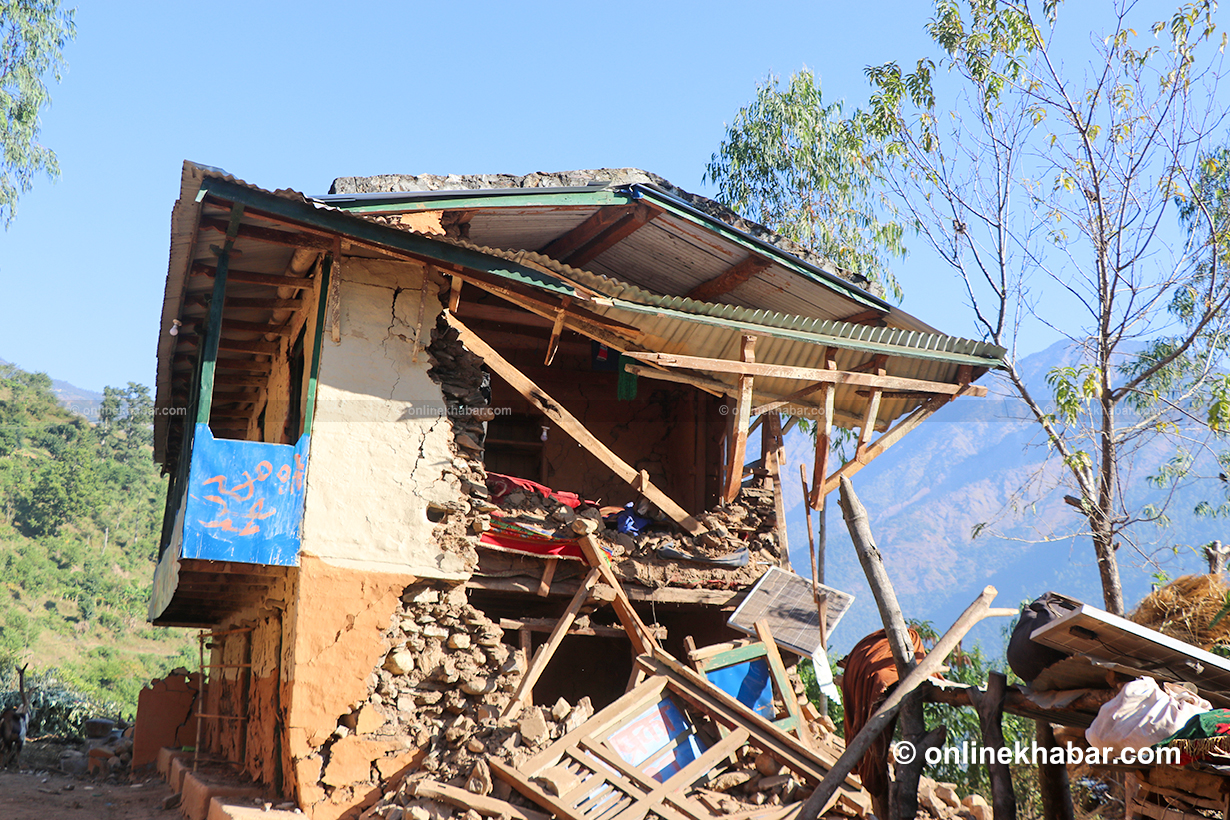
Kami also lost his house, buffaloes and all the ration. “We have lost it all, we all will only survive if the government supports us somehow.”
Mahesh Chunara, 35, described how the locals rallied together to assist in the rescue and recovery efforts for the deceased from the rubble. Subsequently, the police arrived to assess the situation and gather information, while health officials conducted post-mortem examinations.

At this point, there is no other involvement or contribution from the government, they say.
The pain continues
On Saturday night, the locals, still reeling from the trauma of the midnight earthquake, spent the night sleeping outside in makeshift tents and using plastic coverings for shelter. They were surrounded by the lifeless bodies of their family members and neighbours.

“There are 12 bodies here, my daughter and son-in-law are here and there is my grandson in the middle,” Khambe Mahara points out, adding, “We were sleeping in different houses. I just survived somehow.”
Starting Monday morning, they plan to start performing the final rites of the bodies there. But they are still unsure where to get it done.
“The houses are all destroyed, the clothes and the utensils are all buried in all the rubble. The village is all destroyed,” says 41-year-old Shanta Bahadur BK.

The females in the community are wailing their eyes out, in the pain of the loss of their loved ones. Others are still wondering what to eat and how to spend the night. Yashoda Mahar, 28, is concerned as the village is now practically uninhabitable.
Chunara hopes that the government will think about how and where to relocate them for their safety.



